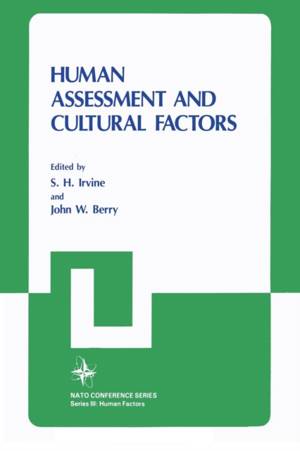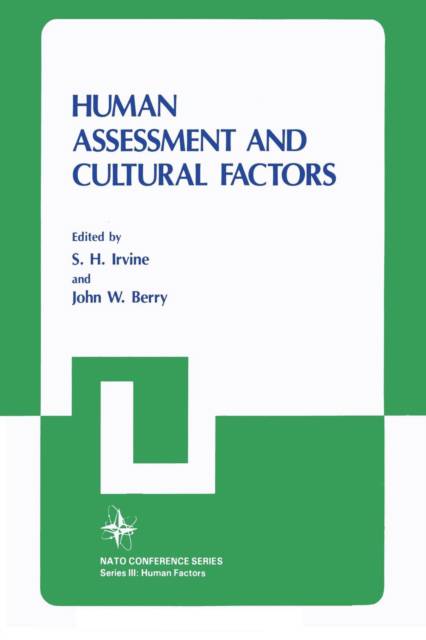
- Afhalen na 1 uur in een winkel met voorraad
- Gratis thuislevering in België vanaf € 30
- Ruim aanbod met 7 miljoen producten
- Afhalen na 1 uur in een winkel met voorraad
- Gratis thuislevering in België vanaf € 30
- Ruim aanbod met 7 miljoen producten
Zoeken
Omschrijving
Against the background of NATO's Istanbul conference of 1971 (Cronbach and Drenth, 1972), the Kingston conference shows that great progress has been made by the community of cross-cultural psychologists. The progress is as much in the psychology of the investigators as in the investigations being reported. In 1971 the investigators were mostly strangers to each other. Behind their reports lay radically different field experiences, disparate research traditions, and mutually contradictory social ideals. Istanbul was not a Tower of Babel, but participants did speak past each other. Now a community exists, thanks to the meetings of NATO and the International Association for Cross-Cultural Psychology, to flourishing journals, and the Triandis et a1. (1980) Handbook. The members tend to know each other, can anticipate how their formu- lations will fallon the ears of others, and accept superficially divergent approaches as making up a collective enterprise. Ten years ago there was open conflict between those who con- fronted exotic peoples with traditional tests and applied tradi- tional interpretations to the responses, and the relativists who insisted that tasks, test taking, and interpretation cannot be "standardized" in the ways that matter. Today's investigators are conscious of the need to revalidate tasks carried into alien settings; they often prefer to redesign the mode of presentation and to attune the subject to test taking. They face the diffi- culties squarely and recognize that even the best means of coping are only partially successful.
Specificaties
Betrokkenen
- Auteur(s):
- Uitgeverij:
Inhoud
- Aantal bladzijden:
- 671
- Taal:
- Engels
- Reeks:
Eigenschappen
- Productcode (EAN):
- 9781489921536
- Verschijningsdatum:
- 29/06/2013
- Uitvoering:
- Paperback
- Formaat:
- Trade paperback (VS)
- Afmetingen:
- 156 mm x 234 mm
- Gewicht:
- 957 g

Alleen bij Standaard Boekhandel
+ 671 punten op je klantenkaart van Standaard Boekhandel
Beoordelingen
We publiceren alleen reviews die voldoen aan de voorwaarden voor reviews. Bekijk onze voorwaarden voor reviews.











